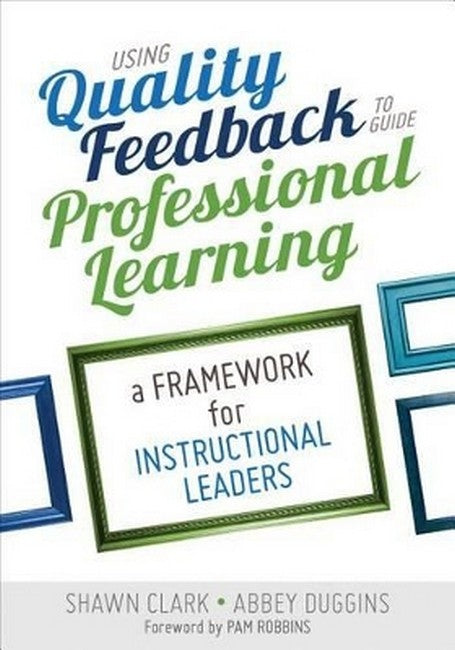As an alumna of the University of South Carolina, Shawn Berry Clark's academic degrees include: Bachelor's of Science in Psychology, Master's of Education in Early Childhood, Master's of Education in Education Administration, and PhD in Education Administration. Her career moves include working in the following areas: participant with the Youth Diversion Project for at-risk youth at USC, youth counselor at The Boys and Girls Club, teacher at USC Children's Center and Webber Elementary School, and administrator at Saluda Middle School for 11 years. Currently, Shawn serves as Director of Curriculum and Instruction for Saluda County Schools. Shawn serves on the board of the South Carolina Association for Supervision and Curriculum Development and the South Carolina Association of School Administrators. She has led professional learning sessions at the local, regional, state, and national levels on topics such as classroom observations and the use of video, formative assessment, common core state standards, and quality feedback. As a former two-time high school dropout, Shawn knows the meaning of not having a quality education and has devoted her life to making school the best possible experience for all students. Shawn and her husband live in Johnston, South Carolina along with Zeus and Titan (their amazing canines). She is the mother of 2 incredible adults, Peyton Love and Dana Kippel - her two main reasons for proving to others that education is the key to having choices in life. Shawn can be reached at sclark@saludaschools.org or shawnbclark@gmail.com. Abbey Spoonmore Duggins has spent the last fourteen years as a middle school English teacher and literacy coach, a middle and high school instructional coach, and a high school assistant principal for instruction. She has master's degrees in Language and Literacy and Educational Administration, as well as a PhD in Language and Literacy from the University of South Carolina. A member of several professional organizations, Abbey is energized by learning, reading, and interacting with students and colleagues. She has recently served her state as president of the South Carolina Leaders of Literacy (SCLL) and is on the board of the South Carolina Association for Supervision and Curriculum Development. She has led professional learning sessions at the local, regional, state, and national level on topics such as formative assessment, classroom discourse, literacy frameworks, and quality feedback. As a classroom teacher, establishing a strong culture of learning and sense of community was at the foundation of her teaching beliefs. This same philosophy is reflected in her writing and her work as an instructional leader. Abbey and her husband reside in Batesburg, South Carolina, where they are raising their own little reader, Maxwell, and his sidekick, Noche (a black lab/German Shepherd mix). She can be reached at aduggins@saludaschools.org or abbeyduggins@hotmail.com.
Request Academic Copy
Please copy the ISBN for submitting review copy form
Description
List of Figures Foreword by Pam Robbins Preface Acknowledgments About the Authors Chapter 1: Why Use Quality Feedback to Guide Professional Learning? Our Journey Toward Quality Feedback Administrator's Turn Coach's Turn Measurable Results: Impact Data A Note About Culture Defining Quality Feedback Immediate Implementation of Quality Feedback From Words to Action Chapter 2: What Research Guides Our Beliefs About Professional Learning? Beliefs About Professional Learning Teachers as Professionals: Honoring Teacher Voice by Tailoring Professional Learning Administrator's Turn Coach's Turn Learning as a Social Process Quality Feedback as a Tool for Reflection Providing Feedback in One-on-One Professional Learning Settings Coach's Turn From Words to Action Chapter 3: How Can Quality Feedback Be Used to Guide Professional Learning? Research and Related Studies on Quality Feedback Using Feedback to Grow Your Teachers Versus Weeding Them Out Administrator's Turn Teacher's Turn Coach's Turn Additional Notes Regarding Our Experience With Providing Quality Feedback From Words to Action Chapter 4: How Can Quality Feedback Support the Novice Teacher? Research and Rationale for Creating Strong Induction Programs Sample Professional Learning Opportunities to Provide Feedback to Novice Teachers Administrator's Turn Coach's Turn Teacher's Turn From Words to Action Chapter 5: How Can Quality Feedback Guide the Good Teacher to Greatness? Lessons from Good to Great Sample Professional Learning Opportunities That Empower Teachers Coach's Turn Pushing the Envelope and Achieving Consistent Excellence Administrator's Turn Teacher's Turn From Words to Action Chapter 6: How Can Quality Feedback Support the Struggling Teacher? Sample Professional Learning Opportunities to Support Struggling Teachers Administrator's Turn Teacher's Turn Coach's Turn From Words to Action Chapter 7: How Can Instructional Leaders Provide Quality Feedback on Assessments? Build an Assessment-Literate Culture Teacher's Turn Sample Professional Learning Opportunities to Support Teachers Teacher's Turn System of Assessment Validation Administrator's Turn Coach's Turn From Words to Action Chapter 8: How Can Instructional Leaders Provide Quality Feedback by Observing? Making Observations a Priority Administrator's Turn Observation Techniques Sample Professional Learning Opportunities to Support Teachers Coach's Turn Teacher's Turn From Words to Action Chapter 9: How Can Instructional Leaders Provide Quality Feedback Through the Use of Video? How It All Began: A Little Bit of Context Rationale for Using Video Sample Professional Learning Opportunities to Support Teachers Teacher's Turn Administrator's Turn Coach's Turn Expanding the Use of Video Teacher's Turn From Words to Action Epilogue Appendix A. Characteristics of Quality Feedback (Figure 1.2) Appendix B. Quality of Feedback: Supporting Administrator Feedback to Teachers Throughout the Year Appendix C C1. Tool 2 QPA Sorting Kindergarten C2. QPA Plan Sorting Kindergarten C3. QPA Sorting Assessment Kindergarten Appendix D D1. Tool 2 Assessment Validation Newspaper Project English III D2. Newspaper Project English III Assessment With Feedback Appendix E E1. Tool 2 Assessment Validation World Religions E2. World Religions Assessment With Feedback Recommended Readings References Index

